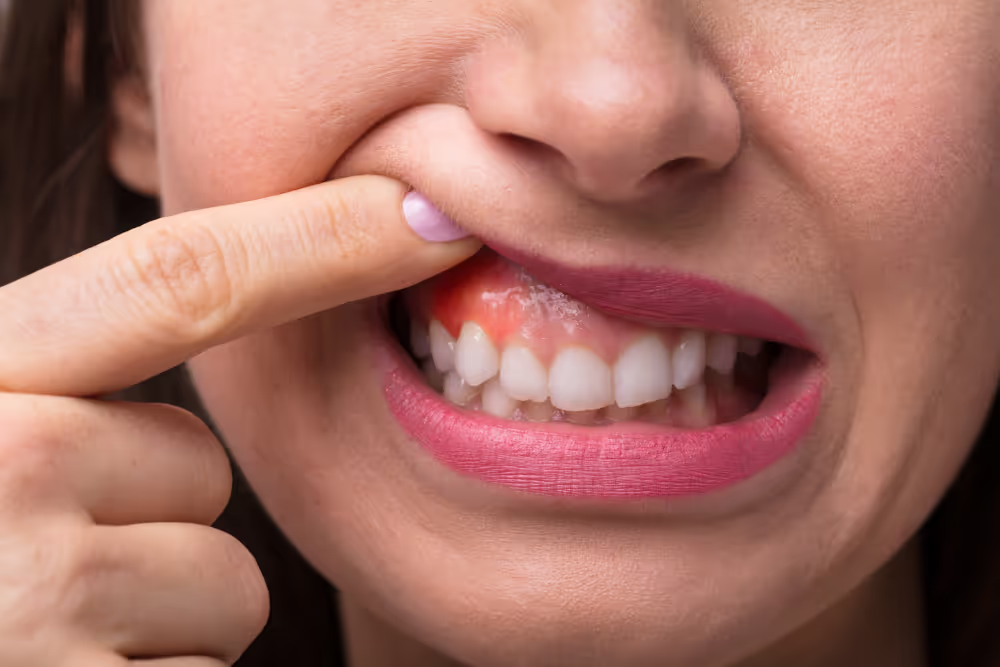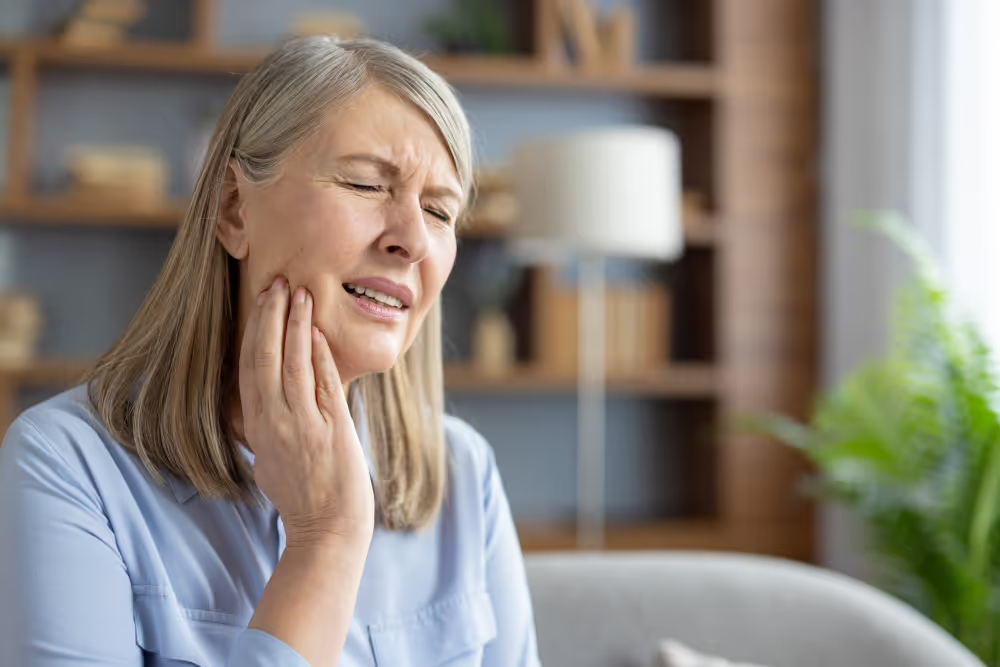
What is Emergency Dentistry?
Emergency dentistry addresses urgent oral health issues that require immediate attention, such as severe pain, injury, or infection. These situations can arise unexpectedly and often involve discomfort. They require prompt care to alleviate pain, prevent further damage, or save a tooth. At Mecca Dental, Dr. Sulmaan Farooqui and his team are dedicated to providing swift and effective treatments for emergency dental cases. Our office in Frisco is equipped to handle a variety of dental emergencies, ensuring that you receive the care you need when you need it the most.
Severe Tooth Pain
Broken or Chipped Tooth
Lost Fillings or Crowns
Severe Swelling
Dental Abscess
Abscessed Tooth Treatment
Soft Tissue Injuries
Knocked-Out Tooth
Jaw Pain
Severe Tooth Pain
A severe toothache often signals underlying issues such as decay or infection. Treatment may involve removing the decayed area and placing a filling, performing root canal therapy to remove the infection, or other interventions to eliminate the source of pain and restore the tooth's integrity.

Broken or Chipped Tooth
For a broken or chipped tooth, there are several treatment options. One option is dental bonding, which uses a tooth-colored composite resin to repair and restore the tooth's shape. Other options include veneers or dental crowns, which allow for more enhanced aesthetics and protection for the damaged tooth. All options aim to restore functionality and aesthetics.

Lost Fillings or Crowns
Lost fillings or crowns can expose your tooth to further damage and decay, as well as cause sensitivity and pain. It's important to seek emergency dental care to replace the filling or crown before the tooth becomes more damaged or infected. Dr. Farooqui can often provide a temporary solution on an emergency basis, followed by a more permanent restoration to fully protect and restore the tooth.

Severe Swelling
Severe swelling of the face or gums can indicate an infection or abscess that requires urgent dental care. Treatment typically involves identifying and treating the source of the infection, which may include incision and drainage (I&D), antibiotics, and in some cases, emergency root canal therapy or extraction. Addressing severe swelling promptly can prevent the spread of infection to other parts of the body.

Dental Abscess
A dental abscess is a severe and potentially life-threatening infection that occurs around the root of a tooth or in the space between the teeth and gums. It's characterized by swelling, pain, and redness in the mouth and face, and may be accompanied by fever and swollen lymph nodes. Immediate treatment by Dr. Farooqui typically involves draining the abscess to alleviate infection, followed by antibiotics to clear any remaining infection. Root canal therapy or tooth extraction may be necessary to prevent future infections.

Abscessed Tooth Treatment
An abscessed tooth is treated through drainage of the abscess, followed by root canal therapy to remove infected tissue and save the tooth. In some cases, extraction may be necessary if the tooth cannot be saved. Antibiotic treatment may also be prescribed to address the infection.

Soft Tissue Injuries
Injuries to the gums, tongue, lips, and cheeks can result in significant bleeding and may require immediate dental attention. Treatment for soft tissue injuries may involve cleaning the wound and, if necessary, sutures to aid in healing. Dr. Farooqui can assess the injury to determine the best course of action and prevent infection.

Knocked-Out Tooth
If you've had a tooth knocked out, it's crucial to act quickly to increase the chances of saving the tooth. Handle the tooth by the crown, not the root, and gently rinse it with water if it's dirty—do not scrub it. If possible, try to place the tooth back in its socket, or keep it moist by placing it in milk, and seek immediate dental care.

Jaw Pain
Jaw pain can be caused by several conditions. A comprehensive examination would be required to find the source of the pain. One common source of jaw pain is Temporomandibular Disorder (TMD) in the Temporomandibular Joint (TMJ). Mild cases of TMD are often treated with an occlusal appliance worn at night, which is designed to temporarily reposition your lower jaw to alleviate pressure on the joint. For severe cases of TMD, surgical intervention may be required, in which case Dr. Farooqui would work closely with other medical professionals to ensure comprehensive care.


Common Dental Emergencies
The cost of emergency dental care can vary depending on the nature of the emergency and the treatments needed. Many dental insurance plans cover emergency dental services, but coverage may vary depending on your specific plan and provider. Contact Mecca Dental to discuss your insurance coverage and any potential out-of-pocket expenses associated with emergency dental care.
While over-the-counter dental cement may provide a temporary solution for a lost filling or crown, it's essential to seek professional dental care as soon as possible. Dental cement can help protect the exposed tooth and alleviate discomfort temporarily, but it's not a permanent fix and may not provide adequate protection against further damage or infection. Dr. Farooqui can provide a more durable and long-lasting restoration.
Some bleeding after a dental procedure or injury is normal, but it should generally stop within a few minutes. If bleeding persists or is excessive, it may indicate a more serious issue such as a deep cut or laceration, or an underlying dental problem. Contact Mecca Dental for further evaluation and treatment if bleeding continues or if you're unsure about the severity of the situation.
While waiting for your emergency dental appointment, you can manage dental pain at home by taking over-the-counter pain relievers such as ibuprofen or acetaminophen. Applying a cold compress to the outside of the mouth near the affected area can also help reduce swelling and alleviate discomfort. Avoid placing aspirin directly on the tooth or gums, as this can cause burns.
While not all dental emergencies can be prevented, maintaining good oral hygiene, wearing protective gear during sports, and avoiding hard foods that can crack teeth can significantly reduce your risk. Regular dental check-ups can also identify potential issues before they become emergencies.

